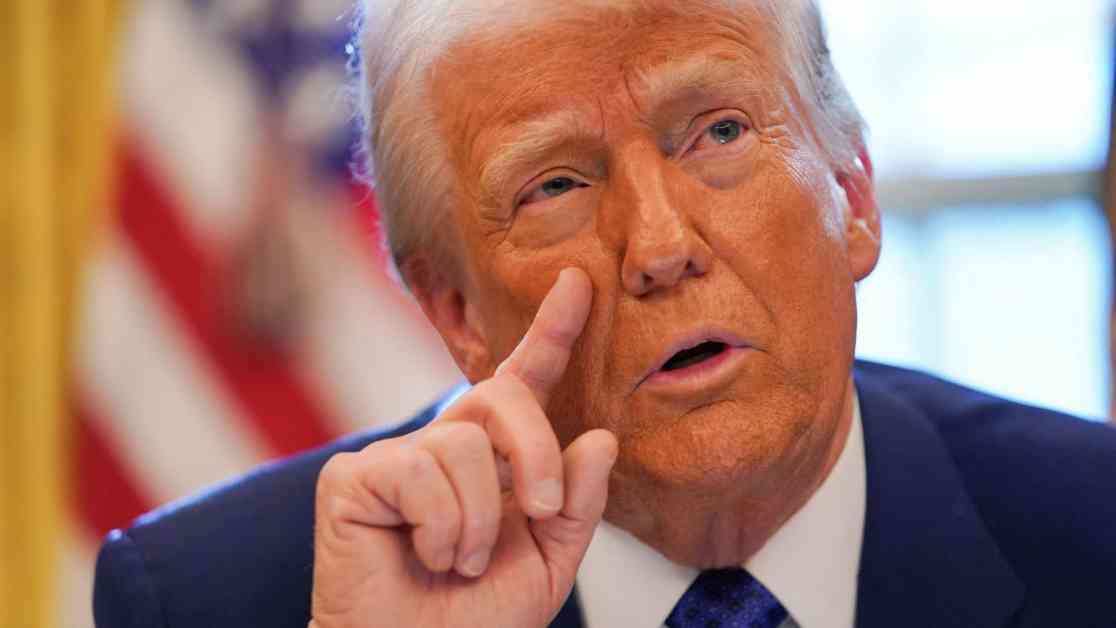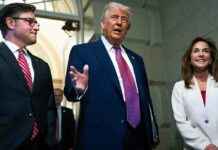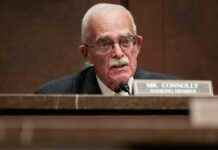In a recent turn of events, U.S. President Donald Trump’s quest to secure access to Ukraine’s rare earth minerals faced a significant setback. President Volodymyr Zelenskyy of Ukraine rejected the bid, citing its heavy focus on U.S. interests and the lack of specific security guarantees for his country. This development unfolded at the Munich Security Conference, where discussions around a potential economic pact tied to Washington’s support for Ukraine were gaining momentum.
Ukraine, known for its vast deposits of critical minerals essential for manufacturing high-tech products, has become a focal point in the global race for resources. The Kyiv School of Economics estimates that the country boasts significant reserves of 20 out of the 50 vital raw materials, including titanium, lithium, and zirconium. President Trump’s ambition to acquire $500 billion worth of these minerals from Ukraine aims to reduce U.S. reliance on China, a strategic move in the complex geopolitical landscape.
However, Zelenskyy’s reservations about the proposed agreement centered on the absence of adequate security assurances for Ukraine. The President expressed concerns about the deal’s readiness to safeguard Ukraine’s interests, a sentiment echoed by various officials and experts in the field. Democratic Senator Chris Coons emphasized the importance of the agreement providing security guarantees for Kyiv to ensure a positive outcome for all parties involved.
Senator Lindsey Graham’s Perspective
Amid these deliberations, U.S. Republican Senator Lindsey Graham hailed the potential minerals deal as a “game changer” in resolving the conflict and a significant challenge for Russian President Vladimir Putin. Graham’s remarks underscore the strategic implications of such an agreement, positioning Ukraine as a valuable partner rather than a burden on the international stage. The Senator’s stance reflects a broader sentiment within U.S. political circles, emphasizing the transformative impact of the proposed deal.
Expert Insights and Analysis
As discussions unfold on the geopolitical significance of the U.S.-Ukraine minerals deal, experts weigh in on the intricacies of the proposal and its broader implications. Binaifer Nowrojee, President of the Open Society Foundation, highlighted the transactional nature of U.S. foreign policy, signaling a pragmatic approach to international relations. However, Nowrojee emphasized Ukraine’s strategic position in negotiations, suggesting that the country holds leverage in shaping the terms of the agreement.
Nataliia Shapoval, head of the KSE Institute, emphasized the importance of negotiating in good faith to ensure a mutually beneficial outcome for both countries. Shapoval’s insights shed light on the complexities of economic diplomacy and the need for a comprehensive approach that goes beyond mere transactions. The delicate balance between economic interests and security considerations underscores the intricate nature of international negotiations in a rapidly evolving global landscape.
In conclusion, the U.S.-Ukraine minerals deal stands at a crossroads, with key stakeholders navigating the contours of economic cooperation and strategic partnership. The road ahead is paved with challenges and opportunities, requiring nuanced diplomacy and collaborative efforts to forge a path towards mutual prosperity and security. As the world watches these developments unfold, the outcome of these negotiations will shape the geopolitical dynamics of the region and beyond, highlighting the interconnectedness of global economies in an era of heightened competition and cooperation.

























